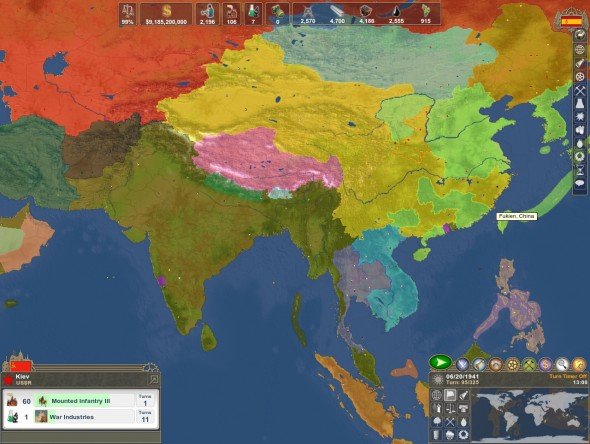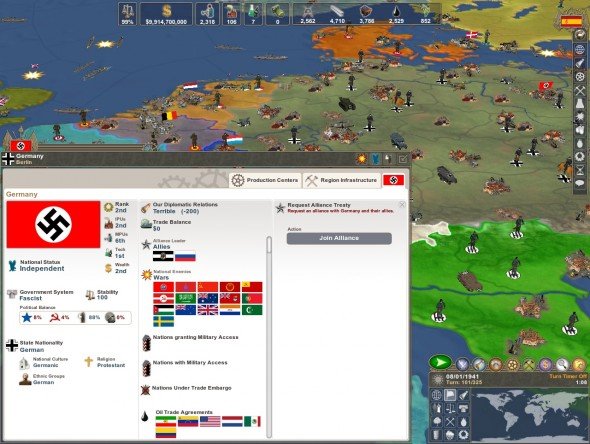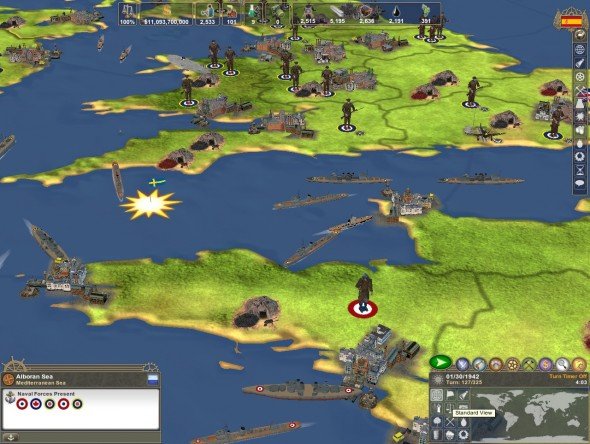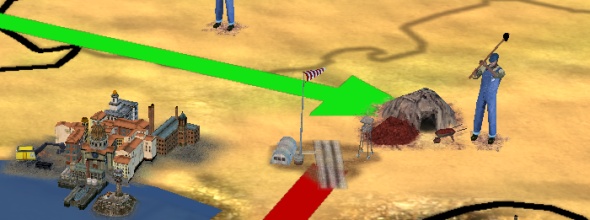Our Verdict
Making History II is impossible to recommend in its present (v1.07) condition. Come back next year.
PC Gamer's got your back
How frightfully naive of me. I'd assumed the 'II' in the title of this turn-based WWII grand strategy goliath signified that it was a sequel. Now that I've played the thing, I realise it's a reference to the framerate.

On a dual-core system that runs Hearts of Iron 3 and Empire: Total War effortlessly, MH2 moves with the natural elan of an arthritic badger. An arthritic badger that's just had its hind quarters squashed by a Sherman tank. Scrolling the pretty global map is like trying to spread chilled butter on soft bread. You could open a can of beans in the time it takes to open a city menu, and load a dishwasher in the time it takes to load a savegame.
The feeling that Muzzy Lane have bitten off more than they can chew, both technically and conceptually, intensifies the more you play. For my first foray into '30s geopolitics I chose 'The German Question' from the three available scenarios, and France from the list of 80-odd playable states. Seventy laggy turns later (one turn = seven days) I'd conquered most of continental Europe including the Third Reich and Mussolini's Italy, and done it all without building a unit, using an aeroplane, or garrisoning a captured territory. I didn't so much feel like I was making history as mocking it.

Spainful
Game two was slightly more plausible. This time I opted to play as a techno Franco. Spain, sitting aloof from WWII, was to be transformed into a scientific powerhouse. Fifty turns in, with most of the huge tech tree still towering above me, I gave in to temptation and invaded Portugal and Ireland. The British alliance responded forcefully – credibly even – with an amphibious landing in Belfast. MH2 was just beginning to show a smidgeon of promise when a crash undid all the good work.
Sessions three and four ended in the same frustrating fashion. If ever a game needed another year in the code womb, this is it. The extra time would have given Muzzy a chance to debug, inject a little more sense into the strategies of AI states, properly balance the five-resource economic system, and flesh out woefully weak areas like diplomacy, ideology and espionage. Currently, the different government types have no domestic effects, and it's impossible to butter-up hostile neighbours or improve your covert capabilities.

A delay would also have permitted the developers a documentation rethink. The absurd 20-page 'manual' found in the boxed version of the game is about as much use as Chamberlain's Munich souvenir.
All of the big Hitler-em-ups – HoI3, Strategic Command, Gary Grigsby's World at War – have flaws, but none arrived in as parlous a state as Making History II. This is Muzzy Lane's Dunkirk. I reckon they and their game will eventually recover, but it's going to take a lot of blood, toil, tears and sweat.
Tim Stone
Making History II is impossible to recommend in its present (v1.07) condition. Come back next year.
PC Gamer is the global authority on PC games—starting in 1993 with the magazine, and then in 2010 with this website you're currently reading. We have writers across the US, Canada, UK and Australia, who you can read about here.



